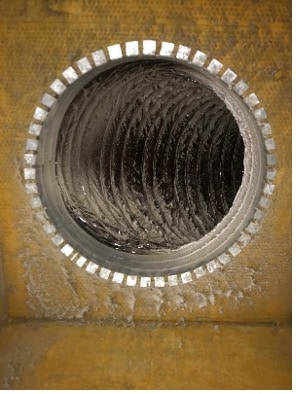How often do we actually think about indoor air quality? Whether at home or the office, we’re usually more concerned with temperature than we are with quality. However, low-quality air presents a host of issues. Read on to learn more about the most common contaminants and how to improve and maintain your indoor air quality.
Indoor Air Quality
Just as it sounds, indoor air quality (IAQ) refers to the air inside building structures and can sometimes refer to its immediate outside air. Air quality is usually defined as it relates to human health. Indoor air pollutants can cause various human health issues depending on the type, dosage, and length of contaminant exposure.
North Florida’s Most Common Indoor Air Contaminants
The main sources of indoor air pollution in the Gainesville area include:
- Mold
- Excess Moisture
- Radon
- Formaldehyde
- Volatile Organic Compounds (VOCs)
- Construction Dust
- Household Cleaning Products
- Pet Dander
- Bacteria
Note, that this list isn’t exhaustive. Depending on life habits, this list can be much longer or shorter. For example, well-maintained homes feature better air quality than homes where cleanliness is poorly maintained.
Indoor Air Contaminant Health Impacts
Florida is a peninsula with a warm and humid climate. Therefore, mold is a common issue in many homes and offices. The presence of mold indoors isn’t unprecedented. Instead, issues arise when the mold count indoors begins to exceed the outdoor count — mold concentrations indoors should be nearly identical to outdoors.
Mold begins to get out of control when homeowners fail to practice some of the following habits:
- Regularly running their air conditioner unit during the humid summer months.
- Quickly identifying and addressing an unwanted water source like a slow plumbing leak or roof leak.
- Running their bathroom’s vent fan while showering.
There are thousands of mold species, and some are more toxic than others. Additionally, mold sensitivity varies from person to person, increasing in concert with mold exposure. In other words, the longer a person is exposed to mold, the more their sensitivity increases.
Nearly every home contains various levels of VOCs and formaldehyde from building materials such as insulation and flooring. When a remodel or construction project is completed in a home, there is likely construction dust that can affect the human respiratory system. Homes with pets also contain dander and hair, which can become trapped in crevices and the home’s HVAC duct system.
If left unchecked, these contaminants work together to cause diseases and conditions, including weakened immune systems, cancer, respiratory illness, allergies, and a host of other issues.
How to Improve and Maintain IAQ
Improving and maintaining indoor air quality is accomplished by the following:
- Properly maintaining your home’s HVAC system.
- Regularly cleaning your home.
- Keeping your thermostat setting within an appropriate range (68°F – 78°F).
- Quickly addressing water leaks from faulty plumbing or leaky roofs.
- Checking caulking around windows to ensure they’re properly sealed.

These habits form a great starting place for improving and maintaining indoor air quality. Most of these habits, including some aspects of HVAC maintenance, can be performed by the average homeowner. For example, homeowners can maintain their HVAC system by regularly replacing their air filter every 1-3 months. Other aspects of HVAC maintenance, such as duct cleaning, can be done by a professional.
Contact Gator Air & Energy For a Healthier Home
Here at Gator Air & Energy, we can help you with your indoor air quality. Our services start with proper HVAC system maintenance, including coil and pan cleaning, air filter replacement, duct cleaning, and UV light installation in the HVAC system’s air handler.
Practicing good home cleaning habits and allowing us to provide routine maintenance every 6-12 months will help you breathe easier in your home. Contact us today for more information about our indoor air quality services here in Gainesville, FL, and the surrounding areas.





